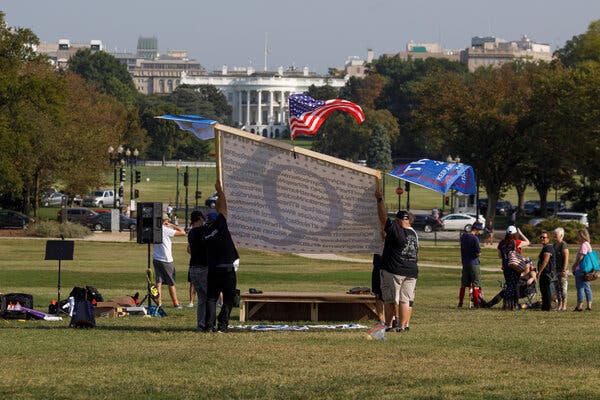Wisconsin Elections commission declines voter purge for now
The Wisconsin Elections Commission for now has delayed taking action to remove voters from the rolls despite an Ozaukee County judge’s Friday order that the registration of up to 234,000 voters be invalidated because they may have moved.
Commissioners by a 3-3 party-line vote failed to approve a motion that would have instructed the commission to remove voters who appeared to have moved within 7 business days of Ozaukee County Judge Paul Malloy issuing a written order.
Malloy could hand down a written order at any moment, after which the Department of Justice, which is representing the Elections Commission, is expected to appeal. The case will likely make its way to the Wisconsin Supreme Court, which conservatives control 5-2.
The commission’s vote comes just days after an Ozaukee County judge handed a victory to conservatives by ordering that the registration of hundreds of thousands of voters be tossed out because they may have moved.
The conservative Wisconsin Institute for Law and Liberty filed a lawsuit against the commission last month alleging it violated state-mandated policies related to “movers,” voters who report an official government transaction from an address different from their voter registration address.
Wisconsin is one of 29 states that participates in the Electronic Registration Information Center, or ERIC, which flags movers. The commission reviews the information to ensure accuracy.
ERIC obtains data from a variety of sources to flag voters who may have moved, such as Wisconsin motor vehicle records, voter registration and motor vehicle records from participating states, and the National Change of Address database from the U.S. Postal Service.
The commission mailed more than 234,000 notifications to voters in early October, but it won’t begin removing non-responsive voters from the polling lists for another year or two.
As of early November, 13,267 of the 234,039 flagged voters were found to have registered at a new address and 54,234 mailings were not able to be delivered. Meanwhile, 1,666 of mailing recipients wanted to remain registered at their original address, meaning ERIC was likely wrong in assuming they moved.
The commission’s decision to delay voter deactivation came after the commission ran into trouble with the 2017 movers process. At that time, more than 300,000 people did not respond to mailings and were identified as ineligible to vote. But after the fact, local elections officials found that many of the voters had not actually moved.
WILL argues the commission violated state law by not deactivating voters who didn’t respond to the mailings within a month after they were sent.
Republicans on the commission agree, and argued they should begin carrying out Malloy’s order unless told otherwise by a higher court. Republican commissioner Robert Spindell, who supports the lawsuit, said data about movers “has to be reliable, not perfect” and that removing potential movers will increase voter confidence in elections, especially among Republicans.
“It’s an outrage to have 200,000 people who probably should not be on the voting rolls,” Spindell said. “I would urge that we go ahead and follow the law. It was a very clear ruling.”
Democrats on the commission argued deactivating voters now could prove irresponsible if a Court of Appeals judge issues an emergency stay, meaning the registrations would need to be reactivated.
“All of us should respect those people that are properly registered and not treat them as if they’re some piece of dirt,” said commissioner Mark Thomsen, a Democrat. “We do not have the right to impede someone’s right to vote.”
As of Dec. 1, Wisconsin had 3,304,914 active registered voters.
Wisconsin law states “the clerk or board of election commissioners” shall deactivate a registered voter if he or she fails to respond to a movers mailing within 30 days.
The commission has argued the law governing the removal of “movers” from the polling lists is directed toward municipal clerks, not the commission. The commission has also argued that a potential mover’s failure to respond to a mailing doesn’t satisfy the law’s requirement of “reliable information” necessary to remove the voter from the polling list.
Republicans say deactivating potential movers is a way to clean up the voter rolls, while Democrats argue doing creates a unfair hurdle for voters. Wisconsin offers same-day registration, but deactivated voters would still need to provide ID and proof of address.
Removing voters from the rolls could have a significant effect on upcoming Wisconsin elections in 2020, including primary and general elections for the state Supreme Court and presidential preference primary and general election.
A Milwaukee Journal Sentinel report found the voter purge would significantly affect Madison and Milwaukee, two Democratic strongholds, but would also affect rural areas that went for President Donald Trump in 2016.














